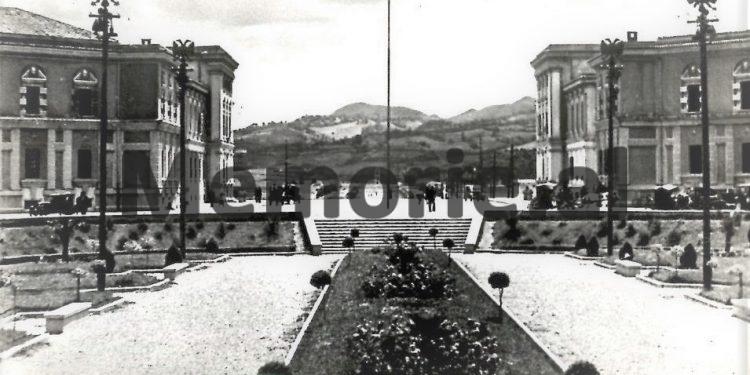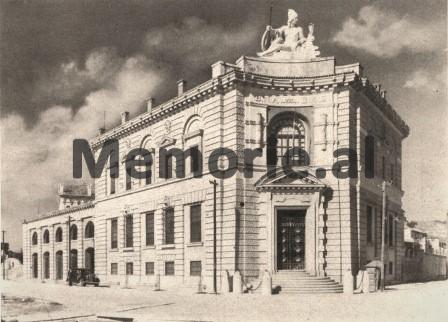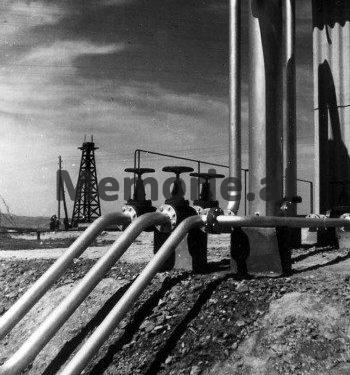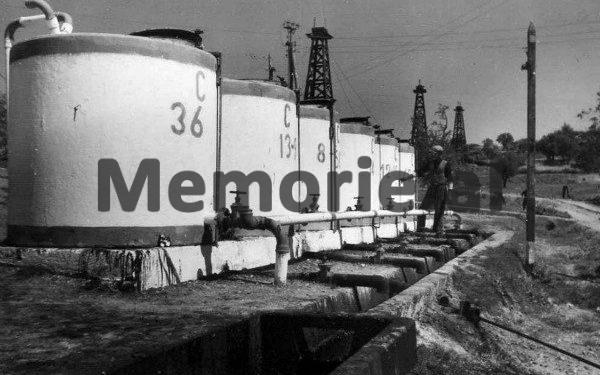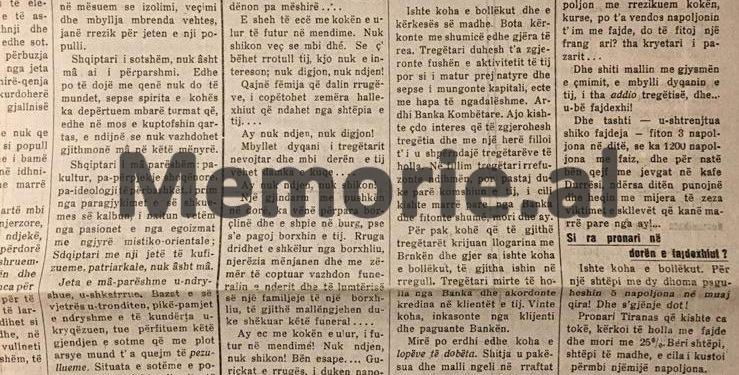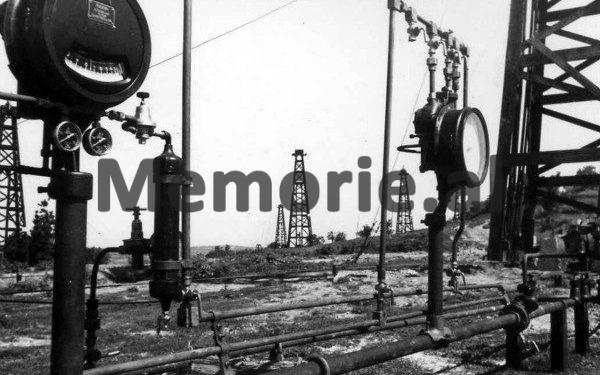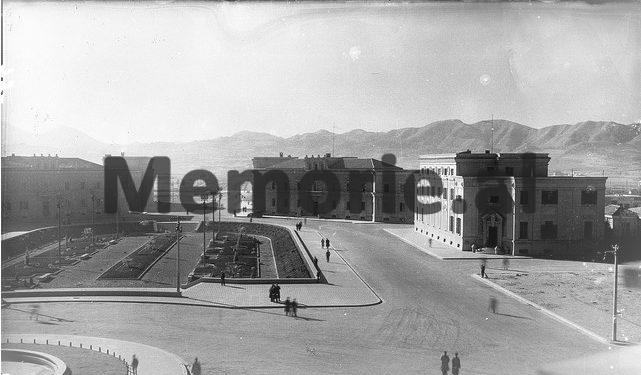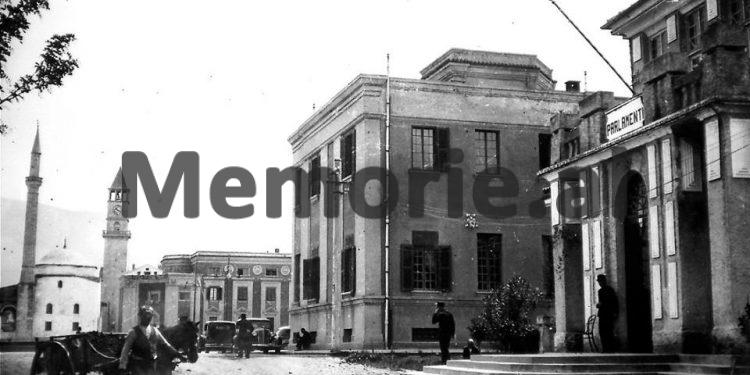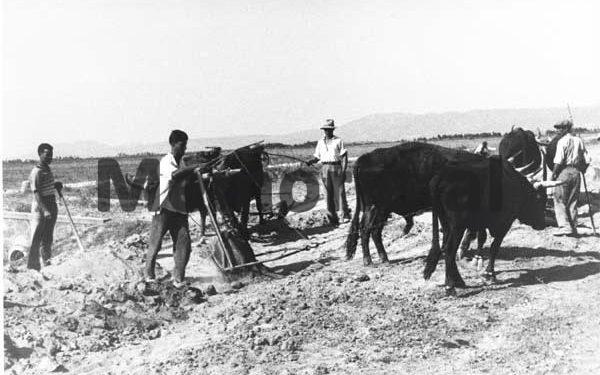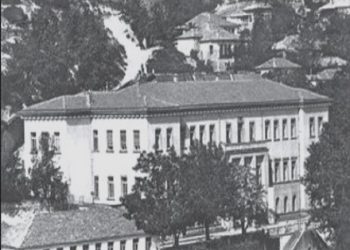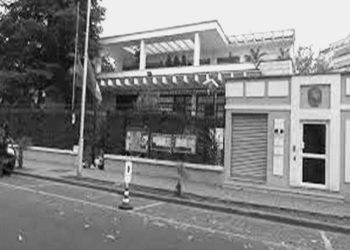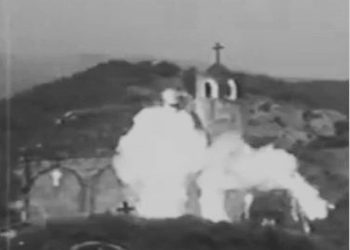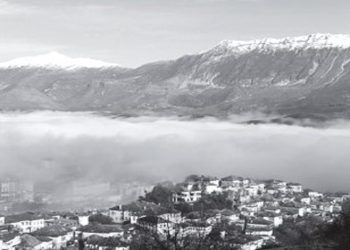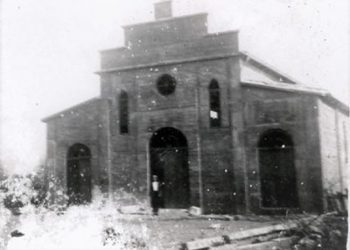Dashnor Kaloçi
Memorie.al publishes the unknown story of the deep economic crisis of the ’30s that had gripped the world, which is also felt in the poor Albania of the Zog Monarchy. What were the consequences of that economic crisis and the numerous complaints of local traders about the National Bank of Albania, which was considered by them as “Dull Huta”, the famous usurer who gave usurious money to traders. How was that economic crisis reflected in the press of the time, such as the magazine specializing only in economics entitled “National Economy”, which was run by the well-known publicist Anastas Plasari and the newspaper “Arbnia” run by the well-known publisher and journalist, Nebil What?!
Throughout the period of the Zog Monarchy and the years of the Nazi-fascist occupation of the country, 1939 – ‘44, the Albanian press of that time paid special attention to economic problems. Even as it is known at that time there was a specialized magazine only for economics entitled “National Economy”, which was run by the well-known publicist Anastas Plasari. In addition to this magazine which dealt with full competence everything related to the national economy, and wider in the region and the world, most of the newspapers of that time devoted one to two pages to economic problems. One of those newspapers of that time that dealt extensively with economic problems, was “ARBËNIA”, which was published in Tirana by the well-known journalist and publisher, Nebil Çika. From this magazine we have taken some excerpts from two articles dated 2, 3, and 4 January 1936, which talk about the consequences of the world crisis that includes Albania in the ’30s, as well as the numerous complaints of Albanian traders of that time, regarding the National Bank of Albania, which they considered as “Dull Huta”, the well-known Tirana usurer who gave usurious money to the merchants of the capital and other cities of Central Albania.
“The need for a moratorium and those responsible for the situation”
The article “The need for a moratorium” states, among other things: “It is true that the global economic crisis, which is a characteristic attribute of the social system of our time, to some extent affected the economic situation of the country, only to reduce exports. miserable national production, but this in no way caused the so-called fukarallëk of the Albanian people. Therefore, those who claim that only the world crisis influenced the economic situation and prepared the field of misery of our people, they are the deceivers of public opinion, they are the main factors of the current situation, they want to lose the visible traces of abuse they have once done. The world economic crisis is the crisis of overproduction, which means that in the capitalist world, more goods were produced than the market demanded, so prices fell. So agrarian countries like Albania, which import industrial products, did not lose but benefited from this situation, because for the same amount of loot, which they imported before the crisis, today export much less money. In addition, states that had people in charge of their jobs were not fooled by the amount of loot, they limited the outflow of money, increased production and exports, reduced the salaries of civil servants, fought smuggling, and thus avoided smuggling. that the economic crisis would transform them into a general misery as was done in our homeland”.
While in the next article entitled: “Traders-craftsmen-industrial” and subtitle: “Situation and complaints-Crisis, tax, and state negligence”, the newspaper “Arbnia” presents a report made by a journalist in the shops and traders Tirana, who complain about the practices of the National Bank. From this writing, we are giving some parts adhering to the official language of that time.
“Bank, as a Jewish merchant”
“What about the National Bank, how are you, Mr. Gjinali?” – Our firm has been forced not to use banking trade because of the Bank’s greed. Loans are charged with unreasonable interest and commissions. Then it lacks seriousness. Are you going to discount a check in foreign currency? There is no price and you have to go shopping. Meaning: sterling has 15.22; tell him that the Yugoslav Bank has 15.05; then begins the bargaining just like the Jew. Prix-fix for the National Bank, is an incomprehensible thing. Try to win as much as possible. So, this institute should not be expected to help trade, because greed and aid are two things that do not agree in any way. Then in the matter of loans it grants, there is no criterion, or as a criterion there is profit here as well. Earn as much as possible. This is the principle of the Bank. The Chamber of Commerce was supposed to be an indispensable institute, but as it is today, it does not work for us at all. Alas, they did not give him any competence. They have an office of the Ministry of National Economy, instead of an Independent Entity, a trade organization. Today the only competence it has is tax collection and issuance of credit certificates. And both boring to trade. It is better to suppress and create Chambers of Commerce, which are more necessary for our agricultural country.
“National Bank, just to rip off”
We forgot the Bank … what the trader suffered with this Bank does not matter. Today that there is also a competitor, the Yugoslav Bank, something came to logic but forward? The commission got as much as it wanted. There was no set fee. Listen to a little story. I’m used to making my calculations as clear as possible. I had asked for an offer for a quantity of goods some time ago and I received an answer about the double price in Durrës. I inquired at what expenses this price would be burdened and I was left to learn the expenses of the Bank, so knowing all the expenses that would weigh on the price of the goods, I found out if it was convenient for me. I went to the Bank and asked the clerk this question: Can you give me a list of commissions you receive for documents coming through the Bank? Ay replied in a rude language that I could not be given. Then I found out that he got as many commissions as he wanted. Sometimes ½, sometimes 2%, in a word according to the case and the person. I brought these to the notice of the Chamber of Commerce at a meeting, also complaining about the issue of the exchange for which the Bank never respects its bulletin that it publishes, but accepts or sells according to the case and the person. I do not know what the Chamber of Commerce did, but one day when I went to the Director of the Bank, as soon as he heard my name, he said to me: You are not our client! … I told Peqe and left. He was right. How could I be her client when I protested against her greed? You have a document in the bank. Notifies you the first time. He does not go to withdraw the document because the goods did not arrive in Durrës. Sends you another notice after five days. When you withdraw the documents yourself, you ask for 0.50 gold francs for the second notice. And if he had made this announcement by telegram, which they ultimately do not understand why he would do it, the 0.50 gold franc gene would not have cost. “As for the loans he grants, he does not take as a basis the honesty of the person, or his power, but grants them as he pleases. “Then take great interest, maybe legal, but for today it is a lot.
“The bank, the ally of the usurers”
And Mr. Ismail Hajdari, continued: “Therefore, many traders do not want to work with that Bank, and those who need it are forced to borrow mortgages from usurers, paying another 120% interest still. Why? Because the Bank does not want, or cannot help the desolate trader, who is forced to grant loans without interest, and yet there is no institution to help him. If the Bank did not help the trader financially, the usurers from our market would disappear and the world would be saved. But the Bank, by its conduct, looks like their ally.
“Moratoriums”
You told me, Mr. Ismajl, that traders have debts, what do you think of a moratorium? And Mr. Hajdari answers: We need a moratorium. It will definitely have a good effect. As for me I have nothing to gain, why thank God, I have no debt, but we talk about the majority. A moratorium is needed. And Mr. Hajdari ended our conversation. Here let us be promised a parenthesis. It is about the National Bank. We have heard many, many complaints against that Bank. How is work? Are traders right or do they take it in vain? However, we will investigate this matter in particular. The burden is worth the rent, why should not we forget that the Bank has a title: National Bank of Albania. Yes, let’s continue our journey.
“Again, the taxes of the Municipality”
In addition, I declare that they pay more fees in the Municipality than we can afford. Since Abedin Nepravishta came to the local Municipality, despite the fact that our situation was bad, I increased the taxes of the Municipality. The worse the situation, the more taxes he imposed on us. Now we hope that this new mayor, who is also a young boy, will remove some of these taxes from us, because by God we cannot pay them …
“Where, the Bank comes out again”
One of the traders, as the cause of the disaster of our trade, finds the National Bank in the first place, and here is how he justifies it: “When we did not have the Bank, we were fine, we did not know anything about bills of exchange. Let’s be all right, but even when someone needed some money, he would go to a guild and get the money he needed. Ever since she came the Bank has broken down. She started giving loans with banknotes and as long as the people had money we did not care, but since the crisis started, the work broke down. Traders since they find money in the Bank, took it there. Well with the crisis, the deadline was coming and the trader, in order not to get dirty, was forced to take money with usury, mortgaging the house, or washing the Bank because she refused to allow any minute to pass. O Money or protest. This is how the merchant fell into the hands of usurers and today he is afraid of losing his house. Today the Bank restricts loans. That is to say, he opened a mess for us, told us that he would help, put us in debt, and now left us completely. You protested and he did not give you credit, he says. I will know neither from the crisis nor about anything. Then how much he takes us for commissions, expenses and others, God save us. You have to pay a bill of exchange. You are not in a position to pay within 48 hours; to know that you are honest and have reasons not to pay; does not wait, but immediately sends you to protest. You go to pay the notary before the protest takes place and among other things he pays 2.50 bank expenses. That is, it gives a gift of discredit to you. We know that the law says to protest as soon as a bill of exchange was not paid, but the Bank must also learn from today’s crisis. “Whether a trader is a thug and therefore does not pay to protest, but whether he does not pay because of the crisis, the Bank as the National Bank that it is and as a trade assistant that it says it is, should not protest.” The poor man remembered that the Bank intends to help Albanian traders! … No, congratulations, the Bank has one goal: Profit, as much as possible. One who explained to him that the Bank, as a commercial enterprise, should win, replied: “Then why does the National Bank say that it is for the good of Albania, what is the difference with Dull Huta who gives usurious money?” Really what the difference is with Dull Huta. It has this difference because it is installed in magnificent offices and has the title: National Bank of Albania. Memorie.al





